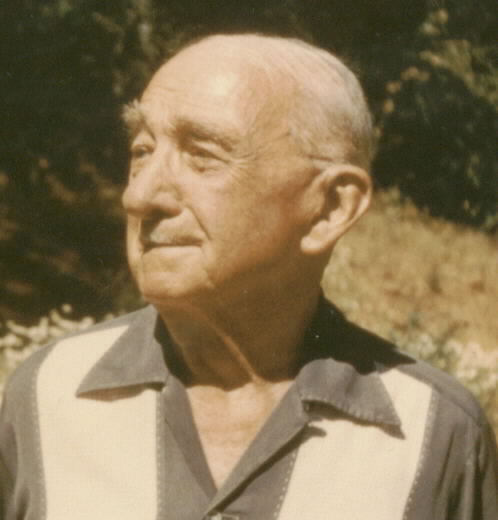
Vaclav's Wife
Bohumila Lesovsky
Pop & Mom
Reineros
Friends
School
Entertainment
Midpines
Parents
Josef Vejborny
Anna Vejborny
Václav Výborný was born on December 12, 1880, the second of eight children born to Josef and Anna Výborný in Časlav, Czechoslovakia. I don’t know anything about the derivation of the name Výborný, but the literal translation of the word is "excellent." At the time of his birth, Czechoslovakia was part of the Austrian-Hungarian Empire. After World War I, the Republic of Czechoslovakia was formed, combining Bohemia, Slovakia and Moravia, and it existed as a republic from 1918 to 1938. Časlav, a small, rural town about 50 miles east of Prague, had a population of around 8,100.
Czechoslovakia has beautiful scenery, with rugged snow-capped mountains, rounded hills and rolling plains. Its natural resources include fertile farmlands and valuable minerals. The country is just a little smaller than the state of New York.
Václav's father, Josef, was production manager of vast lands owned by a well-known aristocrat. Along with wages, the family had free living quarters and all the food they needed that came from the land or cattle. They also had the privilege of hunting game for their own use. The father was a real taskmaster, expecting obedience and work from all his family, as well as from the employees on the land.
Because the field of medicine wasn't very advanced in the 1800s, life expectancy wasn't anything like it is today. Four of Václav's younger siblings died by age 25, with consumption (tuberculosis) being one of the major causes of death. Births were at home with the help of a midwife.
The oldest boy in the family, named Josef after his father, became a schoolmaster while a younger brother, Jindrich (Henry), went into the military. Not liking the disciplined life at home, Václav chose to leave at age 14 and went to Vienna to learn a trade. He apprenticed under a master mechanic, living in his home and working from dawn until dusk. Even though this work was hard, during what free time he had he enjoyed the carefree life of Vienna—the beer taverns, music and dancing. He told of poor conditions in the home of the master mechanic with meager meals, often just soup and bread. He undoubtedly suffered from malnutrition, as in his early twenties most of his hair fell out. Years later some grew in, but he always had a bald spot on the top of his head. In addition to becoming a master mechanic, Václav also learned the locksmith trade. At that time, he had two crossed keys signifying his trade tattooed on one forearm and "WW" (standing for "VV" as the German alphabet didn't have a "V") on the other.
When he was about to be conscripted into the Austrian army, Václav decided to leave and took a ship to America, probably around 1910. Try to imagine the gumption it took to pack your belongings in a couple of suitcases, leave your friends and head for an unfamiliar land. He probably took a train to Bremen, Germany, where he sailed on the George Washington, in steerage class. He had learned to play the accordion and trumpet (self-taught) and brought his instruments with him. During the overseas passage, he would entertain fellow passengers with his music. After getting through the immigration station at Ellis Island on October 9, 1910, he worked his way across the country.
There were quite a few Bohemians living in Minneapolis, but after working there through the winter and enduring the cold in a poorly heated rooming house, Václav decided to head west. Travel then was mostly by railroad, with travelers providing their own food. Václav got to the Napa Valley in California where he found employment at the Korbel Winery. One story he told was of having to help carry the coffin of Mr. Korbel up a hill on a hot summer day. To cool off, the workers ended up in a champagne cellar where they enjoyed drinking the champagne. From here, Václav journeyed to Southern California and found work in Southern Pacific Railroad’s machine shop.
The Sokol was a social organization of the Czech people and a popular place for getting together. It was famous for having a large group of members performing exercise routines in unison. Dances were held regularly with music played by members. Dinners would consist of favorite Bohemian foods such as sausages or roast pork with sauerkraut and dumplings. Undoubtedly this is where Václav met Bohumila Lešovsky whom he later married.

Vaclav at work in America - 1911
2nd row from top someone has a hand on his shoulder

Vaclav in group photograph
4th from left in the back row

Vaclav - 1959

Vaclav - 1955

Vaclav's Parents Josef & Anna circa 1903

Vaclav's Letter of Apprenticeship
Translation of the Original German Letter of Apprenticeship
In the name of the Guild of the Lock-Ring-Chain and Nail Smiths and the Makers of Winches Scales and Weights located in the residence city of our Emperor, Vienna, we the members of the Guild confirm that Mr. Wenzel Wyborny, born 1880, completed his apprenticeship today. Mr. Josef Prazak with whom Mr. Wenzel Wyborny started his apprenticeship August 1894 also confirms this.
During his years as an apprentice Mr. Wyborny acquired the necessary skill for his job. During this period there were no complaints in regard to his behavior at his place of work as well as his private life.
Signed in Wien, Austria August 12, 1897.
Some of the inserts:
LEFT TOP:
Strong as steel be your belief in God. Be as industrious as a bee.
RIGHT TOP
: Who starts his work with God may be sure that his work is successful.

Vaclav at work in his Merced orchard - 1932